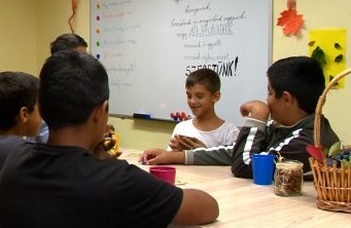The Tanodas in Hungary
A study by PPK authors on the difficulties of minority students

The paper is based on a study carried out among students of Hungarian tanodas – second chance educational institutions in Hungary – and their parents. The findings of the interview research did not support deficit models and suggest that schooling is a vital issue for both Roma/Gypsy families and their children. All families have limited resources and opportunities to achieve desired goals, and despite their strong intent and determination, they often seem to lack a clear vision of the steps to be taken. The results show that children have to cope with negligence, stigmatization, exclusion, discrimination, etc. Turning to tanodas for help has become a sort of coping strategy in and of itself. The researchers could identify, as common parental strategies, the ‘squeezing out’ of the maximum available scarce opportunities, building on social networks, and monitoring their children’s studies. Students’ coping mechanisms regarding identity-threats were more varied and ranged from confrontation via proxy control and social support, to disengaging from school and taking on a negative identity or, the opposite, taking up positive roles.

